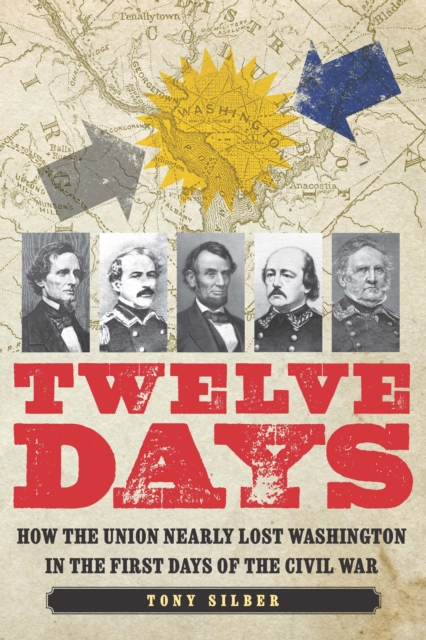
Twelve Days : How the Union Nearly Lost Washington in the First Days of the Civil War PDF
by Tony Silber
Description
In the popular literature and scholarship of the Civil War, the days immediately after the surrender at Fort Sumter are overshadowed by the great battles and seismic changes in American life that followed. The twelve days that began with the federal evacuation of the fort and ended with the arrival of the New York Seventh Militia Regiment in Washington were critically important. The nation’s capital never again came so close to being captured by the Confederates.
Tony Silber’s riveting account starts on April 14, 1861, with President Lincoln’s call for seventy-five thousand militia troops. Washington, a Southern slaveholding city, was the focal point: both sides expected the first clash to occur there. The capital was barely defended, by about two thousand local militia troops of dubious training and loyalty. In Charleston, less than two days away by train, the Confederates had an organized army that was much larger and ready to fight.
Maryland’s eastern sections were already reeling in violent insurrection, and within days Virginia would secede. For half of the twelve days after Fort Sumter, Washington was severed from the North, the telegraph lines cut and the rail lines impassable, sabotaged by secessionist police and militia members. There was no cavalry coming. The United States had a tiny standing army at the time, most of it scattered west of the Mississippi. The federal government’s only defense would be state militias. But in state after state, the militia system was in tatters.
Southern leaders urged an assault on Washington. A Confederate success in capturing Washington would have changed the course of the Civil War. It likely would have assured the secession of Maryland. It might have resulted in England’s recognition of the Confederacy. It would have demoralized the North. Fortunately, none of this happened. Instead, Lincoln emerged as the master of his cabinet, a communications genius, and a strategic giant who possessed a crystal-clear core objective and a powerful commitment to see it through. Told in real time, Twelve Days alternates between the four main scenes of action: Washington, insurrectionist Maryland, the advance of Northern troops, and the Confederate planning and military movements. Twelve Days tells for the first time the entire harrowing story of the first days of the Civil War.
Information
-
Download - Immediately Available
- Format:PDF
- Publisher:Potomac Books
- Publication Date:01/07/2023
- Category:
- ISBN:9781640125902
Other Formats
- Hardback from £28.55
Information
-
Download - Immediately Available
- Format:PDF
- Publisher:Potomac Books
- Publication Date:01/07/2023
- Category:
- ISBN:9781640125902






